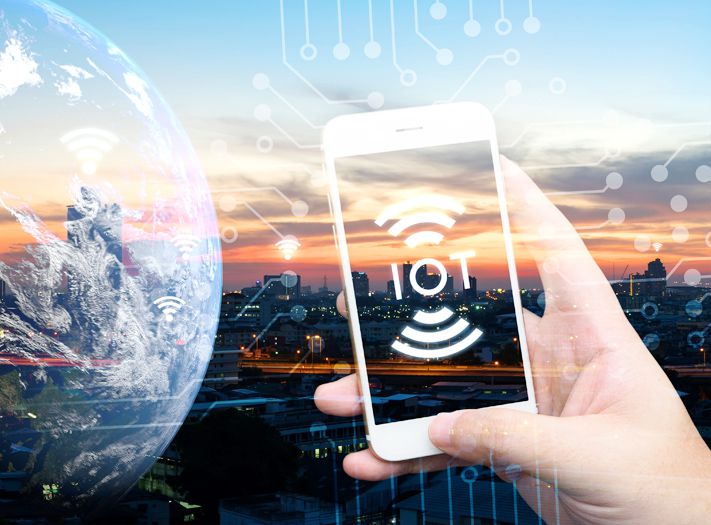Mobile
Why IoT is the Future of Mobile App Development ?

Modern Living has been impacted significantly by the internet of things. This powerful technology consists of a network of sensors that collect data from machines and people. This is sent to a central repository for analysis and provides enhanced visibility to the management - enabling them to understand the effectiveness of policies and procedures and take decisions to improve them.
Internet of Things is an umbrella term used to describe the ecosystem of devices which relate to each other and share data to improve efficiency and to serve customers in a better manner. Coined in 1999, this term has become a mainstream since the last few years. The tech world has realized the enormous potential of IoT and is vociferously striving to create more applications with it.
The world of mobile applications too has come under the influence of Internet of Things. This phenomenal technology has made a significant impact on the development of mobile apps.
App development is a booming trend and given the increasing popularity of smartphones, this trend is here to stay. Customers are now accessing their desired services on the smartphone through dedicated apps as apps offer more customized and prompt service. Companies too are looking to woo customers by offering interactive and effective mobile applications.
And now mobile app developers are looking to use Internet of Things to develop better applications. Here we discuss the impact Internet of Things will have on the mobile application development field.
Open Source Development Will Become the Norm
The explosion of IoT technology could well result in IT companies and developers sharing their programs openly, enabling nascent developers to build their own apps. At Flatworld, we have already begun working on rolling out such programs.
Open source development will skyrocket the growth of mobile applications and more and more smarter minds will enter the arena to make the most of this opportunity. There will be more transparency in app development. Companies and developers collaborating with each other will become a norm in this industry.
Greater Hybrid App Development
Conventional native mobile apps work only on the platform they are created on; this is not ideal in the IoT scenario. We can expect more and more hybrid apps with enhanced UX being developed, incorporating the advanced coding capabilities of hybrid platforms and allowing users to interact with an entire range of multi-platform devices.
This will natural enhance the app experience for the user allowing them access a variety of services in one go. It all also be a win-win situation for companies as this will allow them to get consumer data from other platforms without much hassles.
Niche Development and New Platforms
IoT is still in its nascent stages, and app developers are doing their best to adapt. However, they are hindered by a paucity of platforms, and this has spurred them to create brand-new ones. Experts predict a rise in this trend; with the emergence of an integrated IoT platform, developers who create cross-platform apps will focus more on niche platforms.
This predication clearly indicates that there is so much to gain from developing new platforms and hence many mobile app developers in the future will focus their energies and pump their resources into developing platforms as they offer lucrative returns.
Prompting the Emergence of Innovative Businesses
Anyone who has used the Uber app can swear to the seamless functioning of its app - it's nothing but IoT at work. By gathering data from all the connected devices (taxis) and the app users who are customers simultaneously and continuously, the service allows you to call for a cab with just a few taps on your Smartphone. Without the IoT technology, this, and other similar businesses wouldn't have been possible. Soon, we may see many more innovative businesses emerging, which rely heavily on the use of IoT in mobile apps.
These businesses would focus on solving pressing issues of customers and would deliver a convenient and simple solution. And for this they would tap IoT's enormous potential. There will be many more apps like Uber who will provide seamless services to customers in real time and solve their problems.
There will also be a massive surge in the amount of data collected by companies. This will result in creation of more businesses that will process, analyze and interpret this data.
Small Businesses Having a Big Say
The cost of developing mobile applications is reducing day by day allowing small businesses to step up on the stage of online world. The Internet of Things will further reduce the costing of mobile application development and will enable small businesses to have a louder voice on the bigger platform.
As Internet of Things connects everything into one system, it makes it easier for mobile applications to function and deliver complex services. Small business can benefit immensely from this and create a highly effective mobile application without creating a hole in their wallet.













